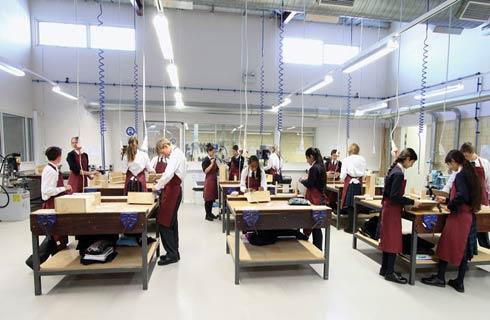Bachelor of Engineering - Mechatronics Engineering (Honours)

学历文凭
Bachelor Degree with Honours

专业院系
Department of Applied Sciences and Technology

开学时间

课程时长

课程学费

国际学生入学条件
IDP—雅思考试联合主办方

雅思考试总分
6.5
- 雅思总分:6.5
- 托福网考总分:84
- 托福笔试总分:560
- 其他语言考试:PTE - 58 - 60
CRICOS代码:
申请截止日期: 请与IDP联系 以获取详细信息。
课程简介
相关申请
 预科
预科 奖学金
奖学金 实习机会
实习机会 在校学习
在校学习 跨境学习
跨境学习 校园授课-线上开始
校园授课-线上开始 在线/远程学习
在线/远程学习
开学时间&学费
学费信息仅供参考,请与IDP联系以获取详细信息
| 开学时间 | 时长 | 学费 | 地点 |
|---|
关于汉博学院

汉博理工学院位于加拿大多伦多市,50多年来一直是国际知名的以职业为导向的教育机构。学院拥有三个先进的校区,是加拿大最大的理工学院之一,拥有超过86000名学生,其中包括超过10000名国际学生。学院提供将课堂学习与实践经验相结合的课程,将当前的行业趋势和解决问题的技能融入其多样化的课程体系中。多伦多是加拿大最大的城市,拥有300万人口,是重要的国际留学目的地。它拥有加拿大最大、最繁忙的机场,吸引着来自世界各地的学生。原因显而易见,多伦多是北美生活质量第三佳城市(《经济学人智库》2023年宜居指数),也是全球第二安全的城市(《经济学人智库》2021年安全城市指数)。汉博理工学院的课程设置围绕五大核心价值观:勇气、创新、公平、健康与福祉以及可持续性。这些价值观引领着学校的使命,即为每位学生提供高质量的教育以及包容和支持性的环境,使他们能够充分发挥学术、个人和职业潜力。
本校相关课程

印刷和网络图形设计成就证书
学历文凭
Bachelor Degree
开学日期
课程费用总额


平面设计高级文凭
学历文凭
Bachelor Degree
开学日期
课程费用总额


摄影文凭
学历文凭
Bachelor Degree
开学日期
课程费用总额


广播文凭-广播
学历文凭
Bachelor Degree
开学日期
课程费用总额


广播电视/录像学文凭
学历文凭
Bachelor Degree
开学日期
课程费用总额


广告与平面设计大专文凭
学历文凭
Bachelor Degree
开学日期
课程费用总额

其他相关课程

机械与机电工程专业哲学博士-纳米技术
 滑铁卢大学
滑铁卢大学学历文凭
Ph.D.
开学日期
课程费用总额


机械和机电一体化工程应用科学硕士-纳米技术
 滑铁卢大学
滑铁卢大学学历文凭
Masters Degree
开学日期
课程费用总额


机械与机电工程应用科学硕士
 滑铁卢大学
滑铁卢大学学历文凭
Masters Degree
开学日期
课程费用总额


工业工程哲学博士
 达尔豪斯大学
达尔豪斯大学学历文凭
Ph.D.
开学日期
课程费用总额


机械工程哲学博士
 达尔豪斯大学
达尔豪斯大学学历文凭
Ph.D.
开学日期
课程费用总额


机械工程应用科学硕士
 达尔豪斯大学
达尔豪斯大学学历文凭
Masters Degree
开学日期
课程费用总额










